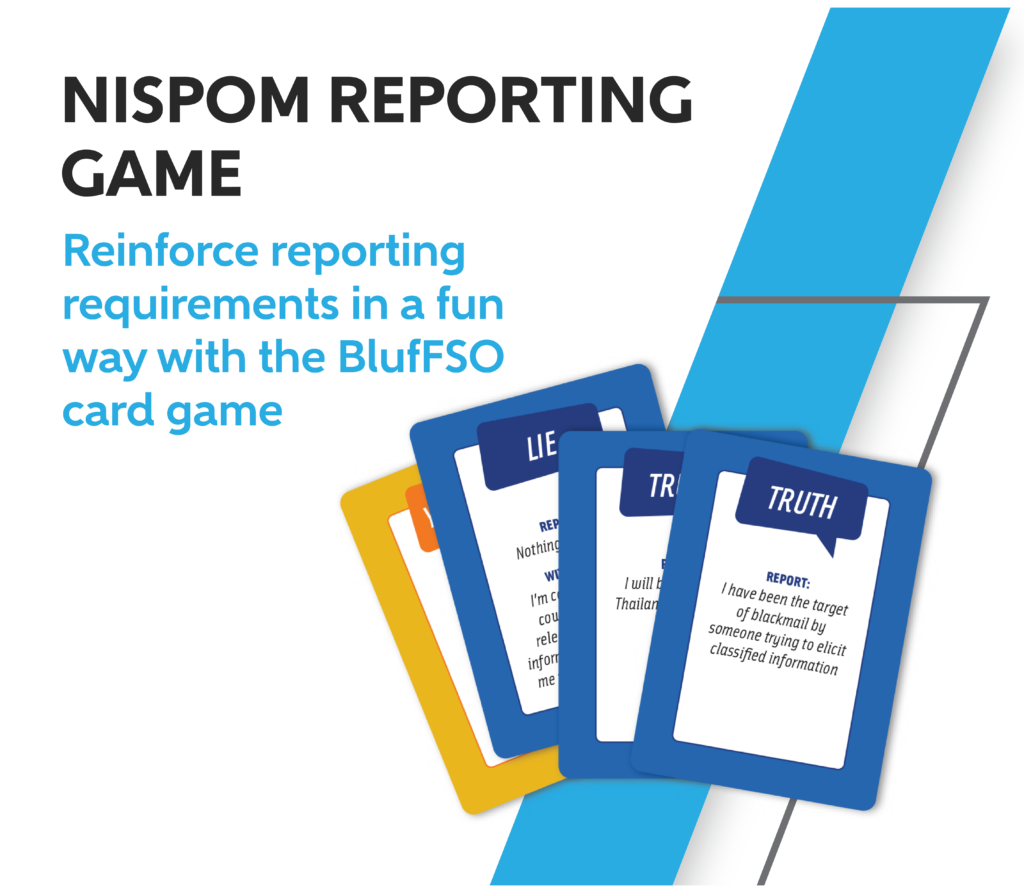Examples of situations that should be reported to an FSO while you’re traveling abroad
Your foreign travel reporting requirements don’t end with letting your Facility Security Officer (FSO) know you’re headed out on vacation. While you’re there, you can’t turn off your security brain completely. You have to remain on the lookout for suspicious behaviors that could put the classified information you safeguard at risk. Sometimes there will be something that happens that’s obviously reportable, but there are also subtle ways bad actors may try to get information out of you.

Here are some examples of situations that you will need to report if they happen while you’re traveling.
Suspicious Conversations or Messages
There’s nothing wrong with striking up a conversation with someone while you’re on vacation or engaging with that chatty seat neighbor on your flight. However, you need to keep your ears open for topics of conversation that may be trying to get you to disclose information you shouldn’t.
If you are talking to someone while traveling, and they seem abnormally interested in your work, put your guard up! More than a question or two about what you do can be a red flag that someone is trying to elicit information from you, especially if they are pushing you to share anything about classified information. Shut down that line of questioning and make sure to report it when you return home. If you have a conversation and realize afterward that you shared something you shouldn’t have, report that to your FSO immediately.
In some cases, if you have posted on social media channels like LinkedIn about your job or even shared that you hold a clearance, foreign agents may be monitoring you and be aware when you enter their country. If you enter a country and begin to receive messages on social media from strangers wanting to meet up with you while you’re there, don’t engage with these. They could be part of a honeypot scheme, where an attractive person tries to flip you into an insider threat or convince you to share classified information. Again, don’t respond to these messages and report them as soon as possible.
You may also have someone make a “bumping” attempt, where they learn about you ahead of time, typically from your social media, and use that information to befriend you and get you to let your guard down. There is always a healthy level of suspicion that you need with strangers when you are entrusted with safeguarding national security information.
Foreign Contacts
If you end up hitting it off with a local and exchanging contact information while you’re on vacation, you need to report that as well. Obviously in most cases there’s nothing to worry about when sharing your information in this way. However, that foreign contact could end up using that information in a long-term attempt to flip you. They may also share your information with others. After you return, if you continue to be contacted by unknown people from the country you visited, don’t engage and let your FSO know.
Possible Encounters with Local Authorities
There is a natural anxiety that comes with dealing with law enforcement in a foreign country. There are also people who are ready and willing to exploit that anxiety to trick you into doing things you wouldn’t otherwise because you’re afraid of going to jail. Someone may pose as an officer in the airport and claim you’ve been reported for an issue and they need to see your ID and passport. They then take a photo of your passport on their phone. They may also extort you and say they’ll let you go if you pay them. This scam will often target adults traveling solo or single adults traveling with children.
If you are approached by an apparent officer, ask for their badge number or to see their identification. You can also ask them to go to a more public space and talk with someone like a front desk worker, especially if you’re in a place where you don’t speak the native language well. If they’re scamming you, this will likely scare them off. Report this encounter once you get home, especially if they’ve gotten a photo of your passport.
Theft and Pickpocketing
While in heavily trafficked tourist areas, pickpocketing can be a concern. These thieves are most likely not targeting a specific person but just looking for anyone in the crowd they could steal from. However, if you are the victim of a pickpocket, you need to report it. If they steal your wallet with your ID, then they have access to some of your Personal Identifiable Information (PII) like your address and date of birth. Your belongings could similarly be stolen out of your hotel room. To prevent these types of thefts, keep anything highly valuable in the hotel room safe or purchase your own portable safe if you’re not sure one will be available where you’re staying. You can also get an anti-theft bag for the things you need to keep on you while out and about.
Wherever you’re traveling, be sure to check the U.S. State Department travel advisories before you’re leaving so you can know what to be aware of, whether it be civil unrest in the area, the risk of wrongful detentions or an increased threat of terrorism. If any encounters or situations don’t feel right, trust your gut and report it to your FSO. It’s always better to over than under report.
With all the reports an FSO has to juggle on top of their countless other responsibilities, getting it all done alone can be a tall order. If you’re an FSO feeling overwhelmed, you don’t have to do it solo. Adamo’s FSO support services can partner with you to help with everything from PCL management to annual briefings to DCSA assessment preparation.




